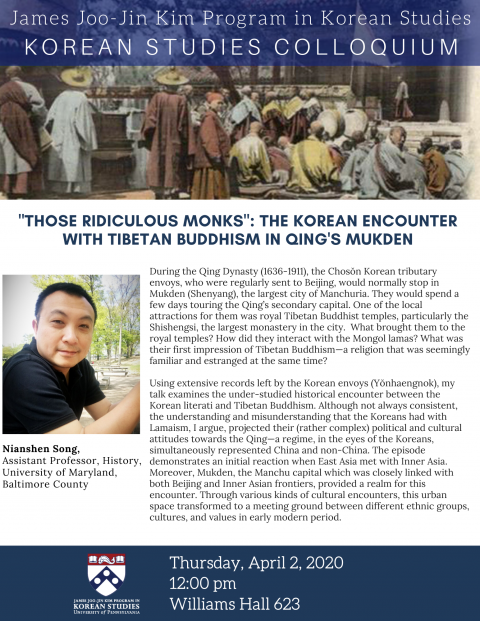
Korean Studies Colloquium
Williams Hall 623
***THIS EVENT HAS BEEN CANCELED DUE TO THE COVID-19 SITUATION***
During the Qing Dynasty (1636-1911), the Chosŏn Korean tributary envoys, who were regularly sent to Beijing, would normally stop in Mukden (Shenyang), the largest city of Manchuria. They would spend a few days touring the Qing’s secondary capital. One of the local attractions for them was royal Tibetan Buddhist temples, particularly the Shishengsi, the largest monastery in the city. What brought them to the royal temples? How did they interact with the Mongol lamas? What was their first impression of Tibetan Buddhism—a religion that was seemingly familiar and estranged at the same time?
Using extensive records left by the Korean envoys (Yŏnhaengnok), my talk examines the under-studied historical encounter between the Korean literati and Tibetan Buddhism. Although not always consistent, the understanding and misunderstanding that the Koreans had with Lamaism, I argue, projected their (rather complex) political and cultural attitudes towards the Qing—a regime, in the eyes of the Koreans, simultaneously represented China and non-China. The episode demonstrates an initial reaction when East Asia met with Inner Asia. Moreover, Mukden, the Manchu capital which was closely linked with both Beijing and Inner Asian frontiers, provided a realm for this encounter. Through various kinds of cultural encounters, this urban space transformed to a meeting ground between different ethnic groups, cultures, and values in early modern period.
 James Joo-Jin Kim Center for Korean Studies
James Joo-Jin Kim Center for Korean Studies